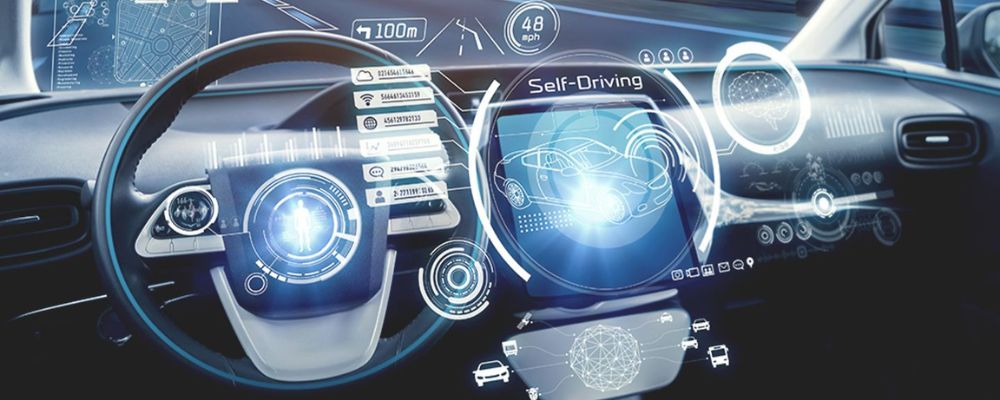
The automotive industry is experiencing a revolution, thanks to the rapid advancements in artificial intelligence (AI). Self-driving technology, powered by AI, is at the forefront of this transformation, promising safer, more efficient, and convenient transportation. In this blog, we delve into the latest developments in AI-driven autonomous vehicles, highlighting key technologies, industry leaders, and future prospects.
The Rise of Autonomous Vehicles
Autonomous vehicles, or self-driving cars, are no longer a distant dream. Major automotive companies and tech giants are investing heavily in AI to make autonomous driving a reality. These vehicles leverage AI algorithms, sensors, and machine learning to navigate and operate without human intervention.
Key Technologies Driving Self-Driving Cars
- Machine Learning and Deep Learning: Machine learning (ML) and deep learning (DL) are at the core of self-driving technology. These AI subsets enable vehicles to learn from vast amounts of data, improving their ability to recognize objects, predict movements, and make decisions.
- Computer Vision: Computer vision systems use cameras and sensors to capture and interpret visual information. This technology allows autonomous vehicles to understand their surroundings, detect obstacles, and identify traffic signals.
- Lidar and Radar: Light Detection and Ranging (Lidar) and Radio Detection and Ranging (Radar) are essential for providing real-time, 3D mapping of the environment. Lidar uses laser pulses, while radar uses radio waves to detect objects and measure their distance and speed.
- Sensor Fusion: Sensor fusion combines data from multiple sensors (cameras, Lidar, radar) to create a comprehensive understanding of the vehicle’s environment. This integration enhances accuracy and reliability.
- AI-Powered Decision Making: Advanced AI algorithms process sensor data to make driving decisions. This includes path planning, obstacle avoidance, and ensuring compliance with traffic laws.
Industry Leaders and Innovators
Several companies are at the forefront of AI-driven automotive advancements. These industry leaders are setting the pace for the future of self-driving technology:
- Tesla: Known for its Autopilot system, Tesla uses AI and over-the-air updates to continuously improve its self-driving capabilities. Their Full Self-Driving (FSD) feature aims to achieve Level 5 autonomy.
- Waymo: A subsidiary of Alphabet Inc., Waymo has been a pioneer in self-driving technology. Their extensive testing and deployment of autonomous taxis demonstrate significant progress in real-world scenarios.
- Cruise: Backed by General Motors, Cruise is focused on developing fully autonomous electric vehicles for urban environments. Their advancements in AI and sensor technology are noteworthy.
- Nvidia: While primarily known for its GPUs, Nvidia has made significant strides in AI for automotive applications. Their Drive platform provides the computational power needed for autonomous driving systems.
Challenges and Future Prospects
Despite the remarkable progress, several challenges remain in the path to fully autonomous vehicles. These include regulatory hurdles, safety concerns, and the need for robust infrastructure. However, the future looks promising as AI continues to evolve and address these issues.
- Regulatory Framework: Establishing clear regulations and safety standards is crucial for the widespread adoption of self-driving cars. Governments and industry stakeholders are working together to create a conducive environment for innovation.
- Safety and Reliability: Ensuring the safety and reliability of autonomous vehicles is paramount. Continuous testing, real-world trials, and improvements in AI algorithms are essential to build public trust.
- Infrastructure Development: The deployment of self-driving cars requires advanced infrastructure, including smart traffic systems, high-definition maps, and reliable communication networks.
Conclusion
AI-driven advancements in self-driving technology are reshaping the automotive industry. With ongoing innovations and investments, autonomous vehicles are poised to revolutionize transportation. Companies like Tesla, Waymo, Cruise, and Nvidia are leading the charge, pushing the boundaries of what AI can achieve in automotive applications. As regulatory frameworks evolve and technology matures, the dream of fully autonomous vehicles is becoming an exciting reality.
By incorporating the latest keywords and optimizing your content, this blog post aims to rank higher in search results, attracting readers interested in the future of AI in the automotive industry.






